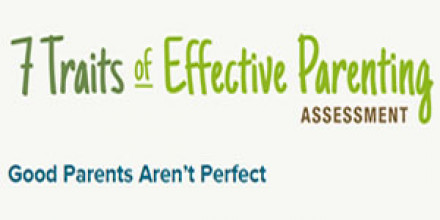Preview:
Dr. Kevin Leman: We’ll say things like, uh, “All right. But then there’s no more candy for life.” And you’ve already told the kid, we’re not gonna have that treat. And then they misbehave, so the question has to be asked: who’s teaching who here?
End of Preview
John Fuller: That’s Dr. Kevin Leman, and he’s our guest today on Focus on the Family, offering advice to help you raise successful, responsible kids who hopefully will love God. Your host is Focus president and author Jim Daly, and I’m John Fuller.
Jim Daly: John, I think parenting is the most, uh, important job any of us can have, and uh, we want our kids to grow up with good character, make us proud, hopefully follow the Lord, is the number one thing. Uh, Dr. Kevin Leman, I think he will do an outstanding job encouraging us as parents on how to get there. And so often, we have great hearts and great intentions, but we tend to mess it up. You know, this thing doesn’t necessarily come with a manual. Jean and I have talked about our boys now being 21 and 19, wouldn’t it be nice to have a do over?
John: Mm-hmm. A redo, yeah.
Jim: You know, all the mistakes we made. And we wanna help couples who have these young children not say that at the end of the road, that we want a do over.
John: Mm-hmm. Well, Dr. Leman and his wife, uh, have five grown children. He knows, experientially and professionally, what it means to, uh, endure the challenges of parenting and to work hard and see what happens. And-
Jim: (laughs)
John: Well, I mean, that’s really ultimately what we’re doing, right?
Jim: I love that.
John: We- we at- we put all the effort in, and then they leave, and we hope.
Jim: (laughs)
John: And uh, Dr. Leman is a Christian Psychologist. He’s got over 60 books. We’re gonna be talking about one of them today. He’s also the founder of the Leman Academy of Excellence, uh, a group of charter schools. Uh, the book we’re gonna be discussing today is called Eight Secrets to Raising Successful Kids: Nurturing Character, Respect and A Winning Attitude. And of course, we have that here at the ministry, just stop by focusonthefamily.com/broadcast to get your copy.
Jim: In addition to that, John, we have a little audience with us, so say hello, everybody. (laughs)
Audience: Hello.
Jim: They’re gonna ask some questions that they’re gonna think about.
John: Of Kevin I hope, not me.
Jim: Yeah, of Kevin. Good point. I think Kevin’s already figured out he’s here for us. Yeah.
John: (laughs)
Jim: To answer all our questions about our parenting woes.
John: Yes, yes.
Jim: But Kevin welcome back to Focus.
Dr. Leman: Hey, it’s great to be here. For our visitors here and for the listeners of our broadcast, when I come here, I’m home. These are my people. Always feel that way. Always look forward to being here. But Jim, you said something interesting, and- and that is, you know, as Christian parents, you want your kid to grow to love the Lord. You know. I’m here to tell you, if you look at the stats, you bring kids up in a Christian home and you do all those things you’re doing right, well, unfortunately the stats, uh, sort of put us in a little different direction.
Jim: Yeah, it’s true.
Dr. Leman: So many kids don’t keep the faith. They wander.
Jim: Right and- and I think that takes us, really, to that question. It’s such a desire for us that we start that parenting journey with high expectations for our kids. And it kinda translates into how they reflect upon us, right? How their behavior and our embarrassment, all those things. So that’s probably the first loaded question I wanted to ask you, is how often are we parenting for ourselves versus parenting for the kids?
Dr. Leman: Well, for many, they vicariously live their lives through their kids. When you think about your kids, and I’ll give you a little, uh, insight here. Uh, I get to title my books. In fact, a lot of authors will call me and say, “Kevin, I need help with the title of a book, can you help me?” It’s just something that I like to do. But the word successful is there for a reason, because young families today are driven with the word success. Well, what’s success? When they think about success, they think about professions. I’m telling you, as a former dean of students at the University of Arizona, the freshmen would come in and my first job was the head dorm rat in a large dorm. Everybody was premed. Everybody was prelaw. Well, do you think they ended up that way? Well, where did those aspirations come from? And so, what I’m saying is parents project, sometimes, their unfulfilled dreams and wishes on their kids, but we think about success, we think about all these other things that quite frankly don’t matter.
Jim: Right.
Dr. Leman: You know?
Jim: And in that context, though, how do we rewire our brains as parents to either redefine success or to make sure character is hopefully top of the line?
Dr. Leman: Well, functionally, I think what’s happens is a parent figures out this isn’t working. My kids got a mouth. He’s not respectful. They talk back. They’re not nice to each other. Uh, you have situations where you talk to your husband or your wife, say, “We gotta do something about this. We gotta move out or we gotta bring somebody in here.” Or.
Jim: (laughs)
Dr. Leman: Uh, you know-
Jim: Kinda something on eBay? (laughs)
Dr. Leman: Well, yeah. There- there’s four of them and two of us. I mean-
Jim: (laughs)
Dr. Leman: And- and you figure you better win their cooperation. I mean, speaking of those dorm days, when I was a young buck starting off at the University of Arizona, my first job was the head resident, one of the deans came over. He said, “Kevin, I have one piece of advice for you.” I said, “What’s that?” He said, “There’s 360 of them and there’s one of you.”
Jim: (laughs)
Dr. Leman: “Learn- learn to win their cooperation.” And so, with kids, what I’m saying is we give them way too many things, folks. Kids don’t need things.
Jim: (laughs) It’s so true.
Dr. Leman: Um, so-
Jim: So- I- but let me ask you though-
Dr. Leman: You gotta take it back a step and try to figure out, you know, Steve Covey said start with the end in mind.
Jim: Right.
Dr. Leman: So-
Jim: Yeah. But in that context then, so as Christian parents particularly-
Dr. Leman: Right.
Jim: We want our children to have Godly character. We want to see them tell the truth. We want them to treat others the way they would wanna be treated. All those great foundations. Um, and we think of that, in later terms, as well as younger terms. I know when they’re going through the terrible twos, you’re not gonna expect them to love thy neighbor. But you want to get them there. So, one of the things you mention in your book is have the long game in mind.
Dr. Leman: Yes.
Jim: Even if in the short run, they’re not behaving the way you would hope they would behave. But how- how do you have the patience as a parent to be able to say, “Okay, little Johnny, I know you don’t want to do this right now.” (laughs)
Dr. Leman: We want our kids to be truthful. We want our kids to have honesty. We want our kids to do all those virtues and values. They’re great. We all want it. Now here’s my question for you parents. Are you that person you want your son or daughter to be? That’s the question. We think about kids and behavior. I’ve written lots of books on how to curb kids’ behavior. And they’re pretty good books, but it really gets back to who you are as a parent. Because the concept of modeling is absolutely profound. And so, these kids, every day, are taking spiritual notes on how you live your life, emotional notes. I mean, psychological notes. It goes down the way. You’re it. There’s- I can’t get you off the hook, parent. You’re it.
Jim: Hm.
Dr. Leman: And as parents, if you’re not on the same page, there’s another huge problem, the kids feel that divisiveness and they’re gonna try, like a fish out of water, to give you a run for your money. So, if you’re rule conscious, and so many Christians are rule conscious, they live by the rules. I was just up in Indiana, uh, speaking, uh, this past weekend, and one of the church buses, I loved it. I made a comment about it publicly. I said, I love your- your church bus. And it said, it’s not about the rules.
John: Hm.
Dr. Leman: My friend Josh McDowell said it years ago, and I’ve used it so many times. I always try to give him credit. But I stole it from him, tell you the truth. But rules- rules without relationship lead to rebellion. And so, most of us have grown up in authoritarian homes, uh, and we sort of revert back to what we were brought up with. In fact, when we’re under fire, the things we tell ourselves we’ll never say to our kid, we not only say them, but we say them with the same tone and inflection.
Jim: And we, you know, talk about those strategies, we’re- I wanna get into that. Uh, the mistakes that parents make. But let’s start on the high side, the eight things that you point out in your book, the eight strategies that you’ve developed for raising successful kids. Let’s touch on those real quick. Can you list them for us?
Dr. Leman: Well, we could start with start with the end in mind.
Jim: Right, that’s good. We kinda covered that one.
Dr. Leman: Okay. Uh, expect the best, you get the best. One of the things we know about our schools, we have high expectations for our scholars. And when you have high expectations, guess what? And I want- this is what you parents need to understand. Your kids actually wanna please you. So what is it in your daily minutia of life where you’re giving kids an opportunity to- to please you? You do far too many things for them. You snow plow the roads of life for them. How about this one? Give and you shall receive. Are you a giver? If you want a kid who thinks about somebody other than themself, do they see that giving nature in you? Uh, role model. We touched on that, but live the disciplined life. We think of discipline, most parents are thinking about, oh, the fearful time out. Give me a break. Uh, discipline is really about how you live your life. Do you live a disciplined life, parent? Again, (laughs) those little eyes are watching. So discipline, don’t punish. Punishment’s easy. You just react and, you know, you want it to be a teachable moment. It’s more of a lifestyle living that disciplined life. Do you want me to go on? I’ve got a couple more.
Jim: Yeah, let’s go ahead and listen to them so people can get their head around them.
Dr. Leman: Okay. Uh, stay the course. I always ask couples, on the sea of life, do you have a port-o-call? Do you know where you’re going? You’re the captain or the co captain of the ship. Okay? And you’re gonna have mutiny on the ship from time to time. And one of those little ankle biters are gonna fall off and you’re gonna have to throw them a- a rescue. You know, bring them back on ship. But again, if you know the port-o-call, if you know where you’re going, kids tend to follow leaders. I’ve written a book on leadership called The Way of the Shepherd. It’s a five star rated book. But one of the things I point out in that book is the sheep will follow only the real shepherd. The authentic shepherd. So there’s gotta be a realness, and many times I think as Christians, we fail to have those moments with our kids as they grow older about the time that you doubted the very existence of God in your life. That’s not an unhealthy conversation, that’s a great conversation. Because I think if all of us are honest, we are at that point once in our life where we stopped and said, “Well wait a minute, um, are all those things, uh, I was taught in Sunday School and church and what my mom and dad- are they real?” I mean, everybody has to come. You don’t make that decision. So for the authoritarian parent, who wants to be way too prescriptive with your kids, I just like to ask the question, who’s making that decision for your kid to follow Christ, you two? (laughs) Doesn’t work that way. So failure is important. The Christian home ought to be a place where kids learn to fail. And it’s gotta be grace filled. And when the milk topples and the orange juice hits the floor and the jam hits the floor, what do most of us do?
Jim: Clean it up.
Dr. Leman: We have a-
Jim: (laughs)
Dr. Leman: We have a hissy fit. Yeah, eventually. But what do we say? “Would you look at that. Didn’t I just tell you be careful? I’m- you- you know what? You remind me of your Uncle Roger. Do you remember your uncle Roger?”
Jim: (laughs) Not Uncle Roger.
Dr. Leman: “You’re gonna end up just like him.” And- and so what we need, uh, is not a thrashing or berating. We need a rag. So those little things, I think those are the teachable moments. And so couple more, and I’ll hush up. Uh, minimize friction. And we should talk about that, because there’s- there’s ways-
Jim: Oh, we will. (laughs)
Dr. Leman: Oh, you will. (laughs) You’re not gonna let me off the hook on that one, are you?
Jim: Yeah.
Dr. Leman: And then always keep the relationship first. It’s all about relationship. Life’s all about relationship. Your job is all about relationships.
Jim: So true. And- and one of the things you mention in the book is this, uh, bad parenting habits, and I think you kinda break it down to two parenting styles.
Dr. Leman: Yeah.
Jim: The pacifist.
Dr. Leman: Yeah.
Jim: And then that, take the child head on. Now Jean and I, it’s kind of interesting, ’cause Jean and I, I think we lean in each of those directions. I tend to be, you know, okay, it’s- be fine, don’t worry about it.
Dr. Leman: Yeah. Yeah, yeah.
Jim: We did marriage counseling a while back. (laughs)
Dr. Leman: I think we talked about it.
Jim: And the counselor said, “Listen,” to Jean, said, “Listen, Jim, he’s an orphan kid. It has to be catastrophic to get his blood pressure up.”
Dr. Leman: Yeah.
Jim: And it’s really true. I mean, Jean would come home so worried or nervous about the kid- ah, it’s okay. It’s okay.
Dr. Leman: Yeah, some people referred to her as Colonel Jean, I want you to know that.
Jim: (laughs) No, now we-
Dr. Leman: But we’ve had- we’ve had discussions about that, but you’re the laid one back one that says it’s okay.
Jim: Well this sounds- she sounds like your wife, too. But, I mean, for Jean, she’s the closest thing to perfect I’ve ever met.
Dr. Leman: Yeah.
Jim: And, uh, and that, you know, it- it comes out of every pore. And so for her, I think that taking the kids head on was her early challenge. She has gotten a lot better in that way. And I think she realized that isn’t the best tactic. But speak to that- both of those temperaments.
Dr. Leman: Well, first of all, let’s talk about the parent that wants to take the kid on. Okay. Do you know who you’re talking to? I am your mother. Okay.
Jim: (laughs)
Dr. Leman: You know that? You know, and- and there’s just something in you that says, wait a minute, I pushed six and a half hours to give you life.
Jim: (laughs)
Dr. Leman: Okay?
John: (laughs)
Dr. Leman: And- and now you hate me? Or whatever they’re telling you.
Jim: The old birth card. (laughs)
Dr. Leman: Uh, and I- I would challenge you, fighting is an act of cooperation. You know exactly what to say to escalate the battle with your husband, with your wife, with the kids. And they know all the little buttons to push. And they know those social situations where they’ve got you over the proverbial barrel. So, like you say Jim, there’s these situations, basically two different things happen. One, we try to buy the kids off. We’re embarrassed.
Jim: (laughs)
Dr. Leman: You know? We’ll say things like, uh, “All right, but then there’s no more candy for life.” And you’ve already told the kid we’re not gonna have that treat. And then they misbehave, so the question has to be ask- asked, who’s teaching who here? Which one’s the monkey and which one’s the organ grinder? Okay.
Jim: Right.
Dr. Leman: So you have the parents who wanna just pacify. It’s the easy route out. And that isn’t discipline. That’s not a discipline lifestyle. Okay. Then the other who wanna take them on, you’re gonna get in a power struggle. I’m here to tell you, you’re gonna lose. They have much more to lose than you. So if your kid’s making a fool of themself in public, yeah, people are looking at your kid and saying, “Oh, that kid’s something else.” But let me tell you what they’re really thinking. They’re thinking, “What is wrong with that parent?”
Jim: (laughs)
Dr. Leman: But sometimes with kids, they throw a little something out there just to see if we’re gonna react.
John: Mm-hmm. Yeah.
Dr. Leman: Or respond. And one of the tips in this book is learn to respond, rather than react. If your doc says, your reaction to the medication, that’s not good. If he says, you responded, that’s good, if that’ll help you keep that in mind. And so it’s- sometimes you might just say to a kid, “Oh, well, I’ve never thought of it that way.
John: Yeah.
Jim: Yeah.
John: This is Focus on the Family with Jim Daly. I’m John Fuller, and Dr. Kevin Leman is our guest. Great stuff. Uh, kind of parenting 101 if you will. Taken from his book, Eight Secrets to Raising Successful Kids. Look for your copy at focusonthefamily.com/broadcast, or call 800, the letter A, and the word FAMILY.
Jim: Uh, Kevin, let’s go back to something you specifically mentioned in the book, and that’s three methods to deflect these arguments. So let’s just say I have a friend and every night at the dinner table, there’s this clash. Mom up against first born. And the others around the table are just going, wow, what’s this gonna be tonight? Speak to that scenario and talk through a different tactic that mom or dad may want to approach, rather than that head on confrontation.
Dr. Leman: Well, this is one of those areas that I think is sort of fun, because it applies to husbands and wives as well in marriage, but one of the things we know about children is they really dislike questions. Okay? And parents love to ask questions, particularly you moms. And asking a mom not to ask a question is quite frankly like asking a fire not to burn. And I’ve been in seminars where people have stood up and say, “Uh, excuse me Dr. Leman, I’ve heard you on Focus on the Family for years. I respect you in your work. I’ve read some of your books, but I must respectfully disagree. I think it’s very important like when James comes home from school, I always ask him the question, how was your day at school, honey?” Okay, well let’s go through that dog and pony show right now. How was your day today at school, honey? Fine. What’d you do? Nothing. I mean, teenager. Where you been? Out. What’d you do? Nothing. So the- we- somehow we think that we’re the questioners. They don’t like questions. I mean, your husband hates questions.
Jim: (laughs)
Dr. Leman: He’s probably afraid of you to tell you the truth. He doesn’t like your questions, and he hates the why word. And so lots of times, we put kids on the defensive and all they do is they just, you know, bolt to their room and text all their buddies and literally shut you out of their life, and they live their life that- a life that you don’t even know they’re living. So I- learning to say things like, “Tell me more about that.” Now, that’s interesting, ’cause it’s a command in the English language. Tell me more about that. You would think that would put up defenses. It doesn’t. That shows interest. So if your kid days something that’s of interest, not a why, okay. But oh wow, that sounds interesting, tell me more about that?
John: Yeah.
Jim: Hm. That’s so true. It is so true. Let’s turn to the, uh, small audience in here. We’re gonna ask you guys to ask questions of Dr. Leman with the remaining time we have. Uh, Loann, I think you’ve got a question, correct?
Loann: I’m Loann, um, I’m a grandmother, as- obviously as well as a mother. But, um, our precious nine year old granddaughter, uh, she is very compliant for the most part. She’s a first born. But every once in a while, when she doesn’t get her own way, she does this very, like, foot stomp, and the little eye rolly thing, and it just frustrates her mother to no end. And so, I said, “Okay, mom, I’m gonna be there. Is that the question you want me to ask?” So that’s the question, what to do with this precious one?
Dr. Leman: Well, one of the things that Jim asked earlier is how do you deflect, you know, some of the stuff you get back form kids.
Loann: Mm-hmm.
Dr. Leman: Now, I figured a long time ago in my life, I was a youngest child, and I found out a long time ago I could make people laugh. And so, I’ve always tried to teach people, hey, try to look at things humorously. So, when the eye roll comes, you know, which frustrates the living heck out of you, try this. Oh, honey that was so good.
Loann: (laughs)
Dr. Leman: Oh, do that again, only do it in slow motion, would you? Oh, my goodness, that was good. And- and usually that lightens up that kid.
Loann: Mm-hmm.
Dr. Leman: But you know, at a later time, not right then and there, you follow up, and that might be as much as a day later.
Loann: Mm-hmm.
Dr. Leman: Or it might even be an hour later. But honey, uh, I wanna go back to something that happened earlier. I mean, I saw the look on your face. You were really- you seemed like you were frustrated. And I’m all ears. You know, one of the tips in this book is learn to listen.
Loann: Yeah.
Dr. Leman: And that’s a difficult skill, especially for us as men. Men aren’t great listeners, by their nature. Women are much better at listening. But just saying, “Honey, if you wanna talk, I’m all ears.” And by the way, when those kids wanna talk, they’re gonna talk.
Loann: Yeah.
Dr. Leman: It might not be convenient for you. It might be at bedtime, it might be 10 o’clock at night, 11 o’clock at night.
Loann: Yeah.
Dr. Leman: But the good parent will take time to listen and get to the feeling level of what’s going on, because sometimes those rolling of the eyes or the slamming of the doors are just the tip of the iceberg that something’s going on at school, and somebody has been, you know, harassing her or picking on her, whatever.
Loann: Yeah.
Dr. Leman: But that always opens the door.
Jim: Hm.
Dr. Leman: So, sharing feelings, okay? Opens things up.
Loann: Mm-hmm.
Dr. Leman: When you become judgmental, it shuts everything down.
Loann: Right.
Dr. Leman: And it’s real easy to be judgmental.
Jim: And that’s probably the point, um, that judgmental- it’s very natural for a parent to have a judgmental attitude. We’ve lived longer lives, we know what works, typically, and what doesn’t work.
Dr. Leman: Yeah.
Jim: And uh, that frustration of the, uh, sassy child, you know? The four, five-year-old. It- other than using humor and trying to deflate that way, are there times a parent needs to do the time out?
Dr. Leman: Oh, action-oriented discipline is great, depending upon where you live, always at the- when I give this advice, I think of the person who lives in an apartment building in Los Angeles. Always think, you know, take the little ankle biter firmly without a lot of words, and put him outside, close the door and lock it. And let him stay out in the backyard. You say, you’re kidding me. I’m not kidding you at all. It’s action oriented. So, any type of action oriented things you can do with kids, the better. I’ve said for years, when kids throw temper tantrums, you step over them. You step over them because you have to understand that that- that behavior, that throwing of the temper tantrum, was thrown for who? For you. It’s a psychological term. It’s called purposive behavior. And so, the kid who’s smart mouth back and forth, he’s a powerful kid. He’s saying, “I’m an authority over you.” A guy named Saint Paul said something completely different in Ephesians 6. He said, “Children, obey your parents. It’s the right thing to do, ’cause God has placed them in what? In authority over you.” And a reminder, the God we love through Jesus Christ, was not an authoritarian. He didn’t straighten us up. Doesn’t grab us by the scruff of the neck, doesn’t rub our nose in it. But His Holy Word says every knee shall bow. So, we’re trying to get away from permissiveness, okay? “I don’t care if you are 14, I’m gonna tie your shoe.” To- away from the authoritarian. “You’re gonna do what I tell you to do as long as you live under this roof, you understand me?” Those are the two extremes. But if you look at the teachings of Christ, he was always in authority, and that’s why I tell mommies, you don’t take any guff from your son ever. Dads realize, you put indelible imprint on those daughters’ lives. So be careful with that quick tongue. That little rudder, as the bible talks about, get- gets you in real trouble. So, if you’re the critical eyed parent, you’re too critical of your son or daughter, let’s pick on the first born. Usually they’re reliable, conscientious list makers and all that. Your first born will not be that way at all. They’ll be a procrastinator. They’ll drag their feet. To put it bluntly, they’ll be slobs. Well, why don’t they measure up? Because every time they try to measure up, they bring home a- a 98 on a 100-word spelling test, only you can say, “you missed two?” What’s wrong with plus 98? So again, just being positive. Looking for the positive.
Jim: Right.
Dr. Leman: Goes a long way in rearing kids.
Jim: That’s good. Let’s get one more. Ashley, I think you have a question.
Ashley: Hi, I’m Ashley.
Dr. Leman: Hello.
Ashley: Um, I have a 14-year-old middle child, girl, and she is overly apologetic. However, my son, 15 years old, built like a linebacker, he, when it comes to apologizing for things that, you know, he should apologize for, he’s very prideful and digs his heels in. How can I help them find that balance?
Dr. Leman: Well, first of all, let me just make a statement. You could beat your 15-year-old with a stick, and he’s not gonna succumb to your desire for him to apologize. But one thing you can do is you can say to him, flat out, “I am very unhappy.” Turn your back and walk away. And turning your back and walking way is essential, because I want you to see what happens. It’s rare, when you tell a 15-year-old, “I’m very disappointed with what just went down here,” you give him a few minutes, he’s gonna come back and he’s gonna essentially say, “Mom, I’m sorry about what I said.” It might be hard for him to get it out. But telling kids that you’re unhappy, keep in mind that kids actually wanna please us as adults. Your 14-year-old, who’s- when she grows up and they have a family reunion and it rains, she’s gonna be apologizing for everybody because she picked the date. Okay? I wrote a book about those people called, uh, “Women Who Can’t Say No.” I think that’s the name of it. But so many people are pleasers by their nature, and they please everybody. And sometimes you have to have a talk with that kid. Honey, there’s in life- times in life when you’re not gonna please everybody. Everybody isn’t gonna like you. There’s a great conversation, a parent to a child. My granddaughter came to me one day and told me she had 18 likes. Isn’t that great, Grampy? I said, “Tell you the truth, I don’t think it’s great at all.” Do you wanna go through life and be liked by everybody? Well, hey, I’m telling you honey, you’re gonna be very unhappy. I mean, people meet my wife. People love my wife. I can give you zip codes of people who don’t like me.
Ashley: (laughs)
Dr. Leman: But it gets back to, do you have a port-o-call? Do you know where you’re going as a parent, as a family? And so, these kids, sometimes I’d have a conversation with that little pleaser and say, “Honey, you know, I love you because you’ve got a soft heart, and you’re quick to apologize, but you know, sometimes I get the feeling you’re apologizing just to sort of avoid a conversation. And I wanna make sure you’re a strong young woman.” Because we live in a society where the peer group says to your daughter, “Smoke this, drink this, snort this, do this, watch that.” What’s in your family repertoire that’s gonna help your kid say no to a world that says yes?
John: Hm.
Dr. Leman: So, I think I- I would take those a little deeper. Take a deep dive on some of that stuff.
Jim: No, that’s good.
Ashley: Okay.
Jim: That’s really good.
Ashley: Thank you.
Jim: Thank you, Ashley. Uh, Kevin, this has been terrific, and I think parents are getting the idea, and grandparents, too, about what, uh, we’re talking about here. Great book, Eight Secrets to Raising Successful Kids. Um, I really wanna encourage people to, uh, get a copy of this. And if you make a gift of any amount here at Focus on the Family, we’ll send it to you as our way of saying thank you. Kevin, we’re not done, though. I wanna come back next time and do much more, uh, uh, than just one day. I wanna come back and cover some more of the material in the book. We also have an end of year match.
John: Mm-hmm.
Jim: Uh, so when people make a gift right now, it’ll be doubled, which is terrific. And you can have twice the impact, uh, to help families here at Focus on the Family. So, I hope you’ll consider that, make a gift. We’ll double it. We’ll send you a copy of, uh, Kevin’s great book. All in the effort of doing ministry together.
John: Mm-hmm. Uh, but wait, there’s more, Jim.
Jim: (laughs)
John: Because we’re bundling the book with a digital download of this broadcast, so you can listen again or pass that along to somebody that prefers to listen to someone like Dr. Leman instead of just reading them. So um, our number is 800, the letter A, and the word FAMILY. Uh, donate and we’ll send that bundle off to you, or uh, if there’s other resources you need, we do have those there. Um, that’s focusonthefamily.com/broadcast.
Jim: Kevin, I can’t wait till tomorrow. Thanks for being with us.
Dr. Leman: Uh, me too. I’m glad to be here. Can’t wait for tomorrow.
John: Hmm, well on behalf of Jim Daly and the entire team, thanks for joining us today for this episode of Focus on the Family. I’m John Fuller, inviting you back next time as we continue the conversation with Dr. Leman. And once again, help you and your family thrive in Christ.

























